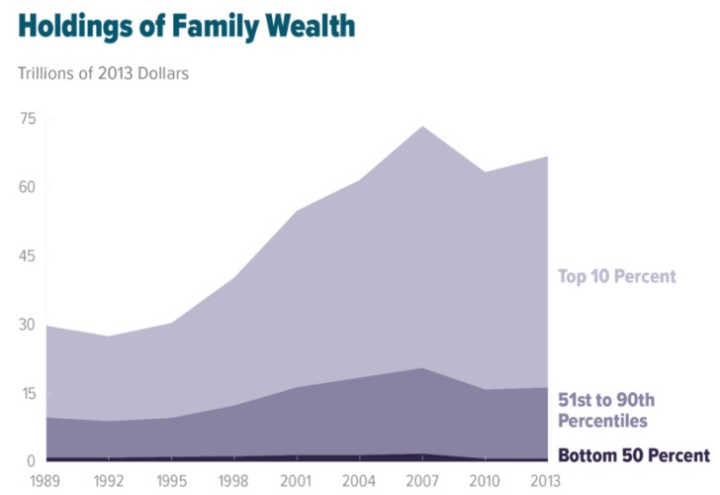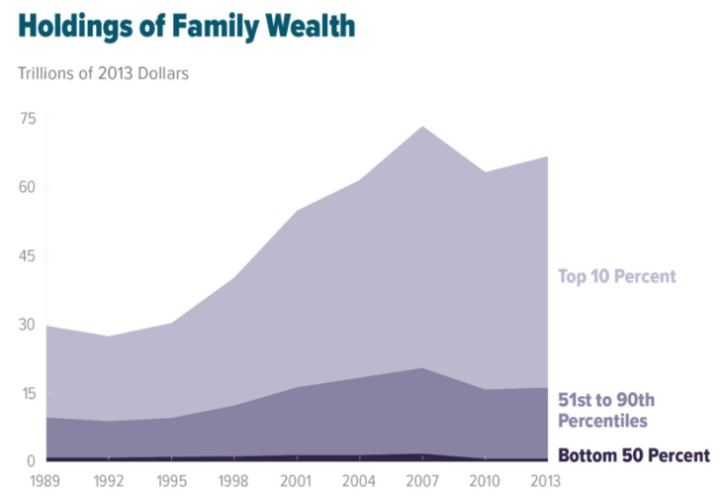
The
NY Times profile quotes me saying
“We don’t really have an Amazon problem. What we have is a deep, societal problem with an unacceptable imbalance of
power and wealth.”
But the URL contained the string “amazon-critic-tim-bray”
and the HTML <title> says “Tim Bray Is Not Done With Amazon”.
I feel like I’m being pigeonholed and I don’t like it.
I am totally not some sort of anti-Amazon obsessive. And I am done with Amazon; even though I’m doubtless on a dozen internal enemies lists, I have no real interest in giving the company, specifically, a hard time. I’m mad at the structure of 21st-century capitalism; the fabric of society is in danger of breaking. I’m enjoying the privilege of having an audience for my criticism and can’t see any reason to limit it to one corporation. Because the problem is so big that any of them, even Amazon, is rounding error.
There’s also the fact that I admire many things about Amazon:
It’s by far the best-managed place I ever worked, including the places where I was the CEO.
The people I worked with in AWS were, on average, decent, honest, and smart.
The climate pledge is admirable. (Haven’t seen much action recently, and I guess Covid is a not-terrible excuse, but come on, the climate emergency’s not going away.)
The company is working hard on Diversity & Inclusion. The results are meh (like all over the tech biz) but the energy and funding are there.
Amazon.com has improved the world by showing what well-done online shopping is like. The world likes it. It remains to be seen what the world is like when there are a lot more parties offering really great online shopping.
AWS has improved the world of IT by showing what well-done cloud computing is like. The IT world likes it. Public-cloud competition is stiffening, but AWS is a really good choice for almost anyone’s needs. Its lead over the competition is well-earned. I’m doing a bit of consulting here and there and have found myself recommending AWS more than once already.
Except for that thing · The firing-whistleblowers thing I mean. They shouldn’t have done that and there’s no excuse. I still think quitting was the only thing to do. But I feel no need (nor, apparently, does Amazon) to relitigate that issue.
Well, and one other thing: Amazon’s absurd and cruel down-to-the-last-ditch-and-beyond resistance to unionization. There’s no way that’s reasonable. I’ve gotten to know some fine, inspiring people working that front and I’ll support them going forward, any way I can.
The rest of the things · There’s lots more to complain about but little of it is specific to Amazon, it’s all about 21st-century-capitalism, like so:
Warehouse workers’ lives are often shitty. In fact, life for the US working class these days is shitty, and it’s not by accident, it’s by design. It was called the Reagan-Thatcher neoliberal consensus, and it was wrapped up with lots of high-flying rhetoric about this freedom and that dynamism and those flexibilities, but you don’t have to be that cynical to see it as good old-fashioned class war. It’s obvious who’s winning.
Big Tech sells technology to loathsome customers, for example carbon-vomiting oil extractors and overempowered child-caging immigration officials. Of course, possibly the bug is that these sorts of organizations are allowed to have oceans of money. Fix that and remove the temptation!
Big Tech emits a whole lot of carbon into the atmosphere and facilitates the emission of much, much more. Humanity can’t afford this and it has to stop.
Big Business in general and Big Tech in particular is waaaay too powerful; the millions poured into lobbying have fabulous ROI.
Break ’em Up · I’m strongly convinced that the structure of Big Business in general and Big Tech in particular is too concentrated in ways that are damaging along multiple axes. Check out Anti-Monopoly Thinking and Large Companies Considered Harmful; this is not a new opinion.
Let’s start with Google. It feels the most urgent because the Google/Facebook ad cartel is rapidly destroying publishing business models that have been essential to civilized human dicourse.
Next I’d go after Microsoft who are still, all these decades later, using the cash and incumbency advantages of their steely grip on the business desktop and email server to invade other business sectors. Which is to say, Slack has a gripe. This one is particularly maddening to me because Microsoft has been doing this shit since I was carving code on stone tablets.
By the time you’d launched those campaigns I suspect Amazon would wake up, smell the coffee, and spin out AWS already. Then we’ll see what the retail business is really like given the violent contrast between the galactic revenue growth and the negligible profit margin.
Media Friction · I’ve had a certain amount of friction with the journalists who found me interesting after my May 1st exit from Amazon. Because there was this great, simple, story that they’d like to have told: Plucky engineer leads geek revolt against Jeff Bezos, Richest Man In the World.
That struggle story — Man against company, or Man against Billionaire — is a crowd-pleaser. The actual struggle that interests me is against the current horrifying imbalance in global power and wealth, which is kind of abstract, doesn’t have a chiseled cartoon-villain billionaire in the cast, and is frighteningly large in scale.
Seriously; basically every reporter I’ve talked to has tried to get me to say awful things about Amazon and in particular about Jeff Bezos. But at my last job they taught me to think big and, with all his billions, Jeff is rounding error in the big picture. He’s not the problem; the legal/regulatory power structures that enable him and his peers is.
Amazon is a perfectly OK company, to the extent that planetary-scale sprawling corporate behemoths can be perfectly OK in 2020. Which is to say, not OK at all.
But once again, no one company is the problem. The problem’s the entirely-fixed great global card game illustrated by that graph, above. The problem’s the fact that in one of the world’s wealthiest economies, we have ever-growing homeless camps where they’re dying of opioids faster than Covid. (That’s maybe not the worst part, but it’s the one I see with my own eyes.)
We can do way better as a society than the greed-fueled planet-destroying worker-crushing hamster-wheel we’re spinning right now.
That’s why I’m making noise.
如有侵权请联系:admin#unsafe.sh
